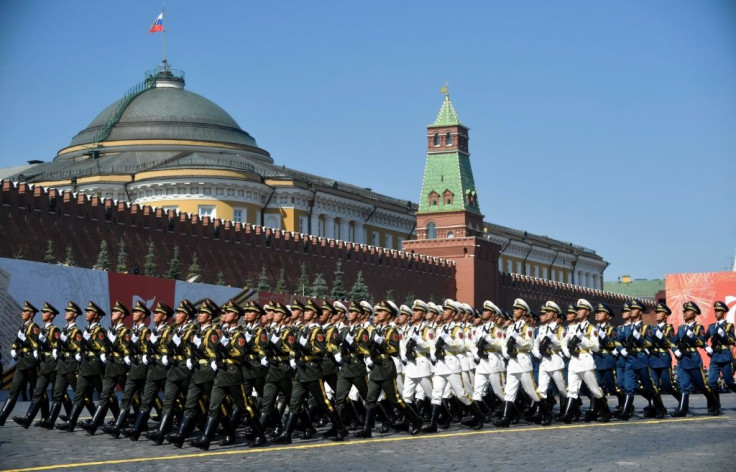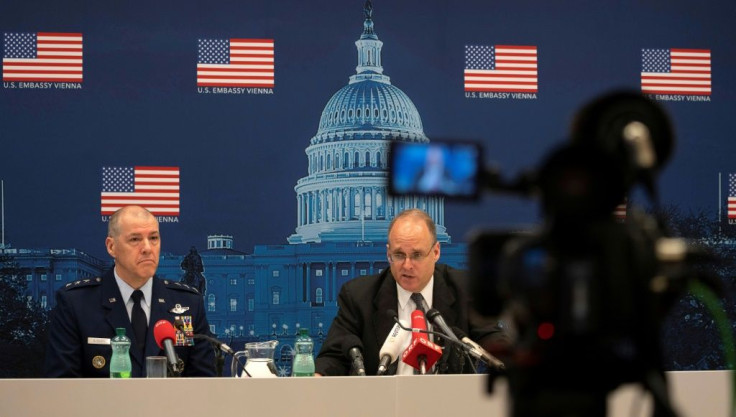US Invites China To Arms Control Talks, Seeing Opening
The United States on Thursday again invited China to talks on arms control, saying it saw an opening with Beijing on three-way negotiations with Russia despite intense disagreements.
"The United States welcomes China's commitment to engage in arms control negotiations. As such, prudent next steps will need to include face-to-face meetings between the United States and China," State Department spokeswoman Morgan Ortagus said.
President Donald Trump's administration has been demanding that a rising China take part in talks on a successor to the New START treaty, which caps the nuclear warheads of Cold War-era superpowers the United States and Russia.
China did not join initial US-Russia talks last month in Vienna on the treaty, which expires in February.
But China on Wednesday said it was willing to participate in arms control negotiations with the United States -- with the major caveat that Washington reduce its arsenal to the much smaller size of Beijing.

Fu Cong, director general of the Department of Arms Control at China's foreign ministry, charged that the US stance was "nothing but a ploy" to let Washington leave New START and have a free hand in ramping up its nuclear program.
The United States nonetheless saw the glass as half-full and seized on the statement, saying that Marshall Billingslea, the US negotiator, would invite China to talks to follow up.
"We will all bring different perspectives and objectives to the negotiating table and will surely have disagreements," Ortagus said.
"But it is time for dialogue and diplomacy between the three biggest nuclear weapons powers on how to prevent a new arms race."

In Vienna, the United States deplored the Chinese absence and released a photo of the three nations' flags in an empty room -- infuriating Beijing, which called the photo a stunt as it had never agreed to participate.
Anatoly Antonov, the Russian ambassador to the United States, said Wednesday it remained "crystal clear" that China was not ready to participate -- and that Moscow, while not opposed to Beijing's role, would not join US pressure to bring in the Asian power.
"We are ready for any development of the situation with the New START. We are not going to save it at any cost, especially the one that Americans insist upon," he said at the Center for the National Interest.
He renewed Russia's call for US-allied nuclear powers France and Britain to join talks if China enters -- and questioned the ultimate effects if Beijing is part of New START.
If the United States and Russia do not reduce their arsenals, a future treaty could effectively condone China ramping up its arsenal to the extent of the other two nations, he said.
"A question to those guys who are in favor to invite China -- whether the Russian Federation and the United States are ready to decrease their quantity of warheads and missiles at the level China has," he asked.
According to the Stockholm International Peace Research Institute, Russia possesses 6,375 nuclear warheads, including those that are not deployed, and the United States has 5,800.
China was a distant third with 320 warheads.
The Trump administration says that China nonetheless is quickly expanding its military with no requirements of transparency, belying its desire to be treated as a major power.
Russia, as well as some US Democrats, have called for a simple extension of New START. The treaty expires February 5, meaning the decision could ultimately fall on Joe Biden, the presumptive Democratic presidential candidate, if Trump loses re-election.
© Copyright AFP 2024. All rights reserved.





















